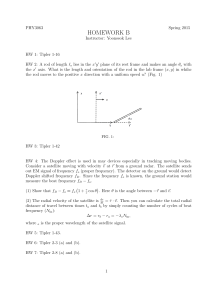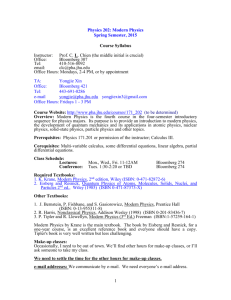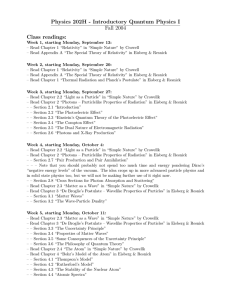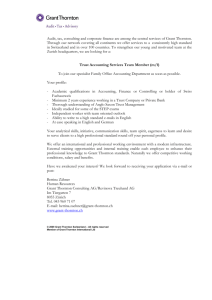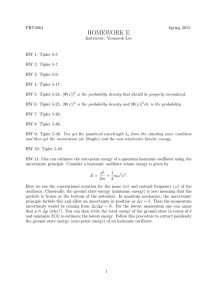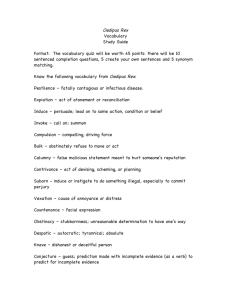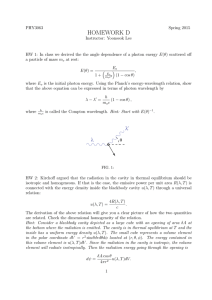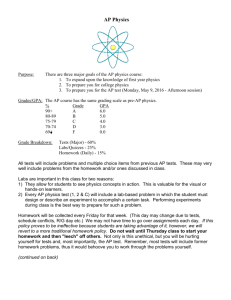Package_Front_Page_template
advertisement
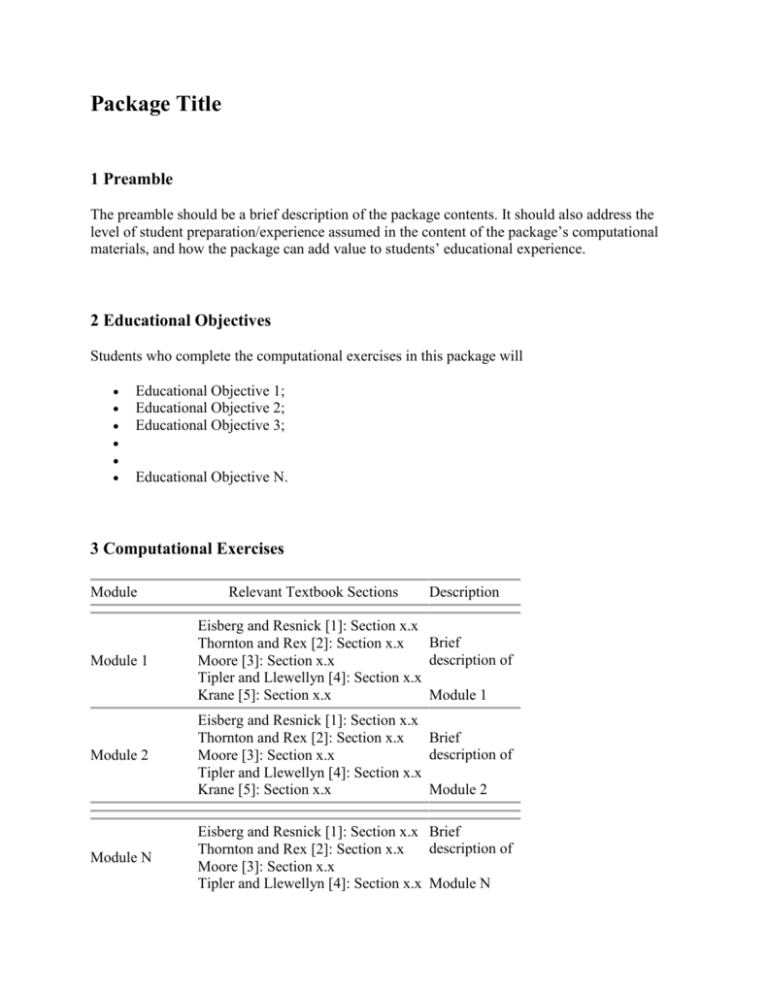
Package Title 1 Preamble The preamble should be a brief description of the package contents. It should also address the level of student preparation/experience assumed in the content of the package’s computational materials, and how the package can add value to students’ educational experience. 2 Educational Objectives Students who complete the computational exercises in this package will Educational Objective 1; Educational Objective 2; Educational Objective 3; Educational Objective N. 3 Computational Exercises Module Relevant Textbook Sections Description Module 1 Eisberg and Resnick [1]: Section x.x Brief Thornton and Rex [2]: Section x.x description of Moore [3]: Section x.x Tipler and Llewellyn [4]: Section x.x Krane [5]: Section x.x Module 1 Module 2 Eisberg and Resnick [1]: Section x.x Brief Thornton and Rex [2]: Section x.x description of Moore [3]: Section x.x Tipler and Llewellyn [4]: Section x.x Krane [5]: Section x.x Module 2 Module N Eisberg and Resnick [1]: Section x.x Brief description of Thornton and Rex [2]: Section x.x Moore [3]: Section x.x Tipler and Llewellyn [4]: Section x.x Module N Krane [5]: Section x.x 1. R. Eisberg and R. Resnick, Quantum Physics of Atoms, Molecules, Solids, Nuclei, and Particles, 2nd ed. (Wiley, New York, 1985). 2. S.T. Thornton and A. Rex, Modern Physics for Scientists and Engineers, 4th ed. (Brooks/Cole, Boston, 2013). 3. T.A. Moore, Six Ideas That Shaped Physics, Unit Q: Particles Behave Like Waves, 2nd ed. (McGraw-Hill, New York, 2003). 4. P.A. Tipler and R. Llewellyn, Modern Physics, 6th ed. (W.H. Freeman and Company, New York, 2012). 5. K.S. Krane, Modern Physics, 3rd ed. (John Wiley & Sons, Inc., 2012). 6. Others...
